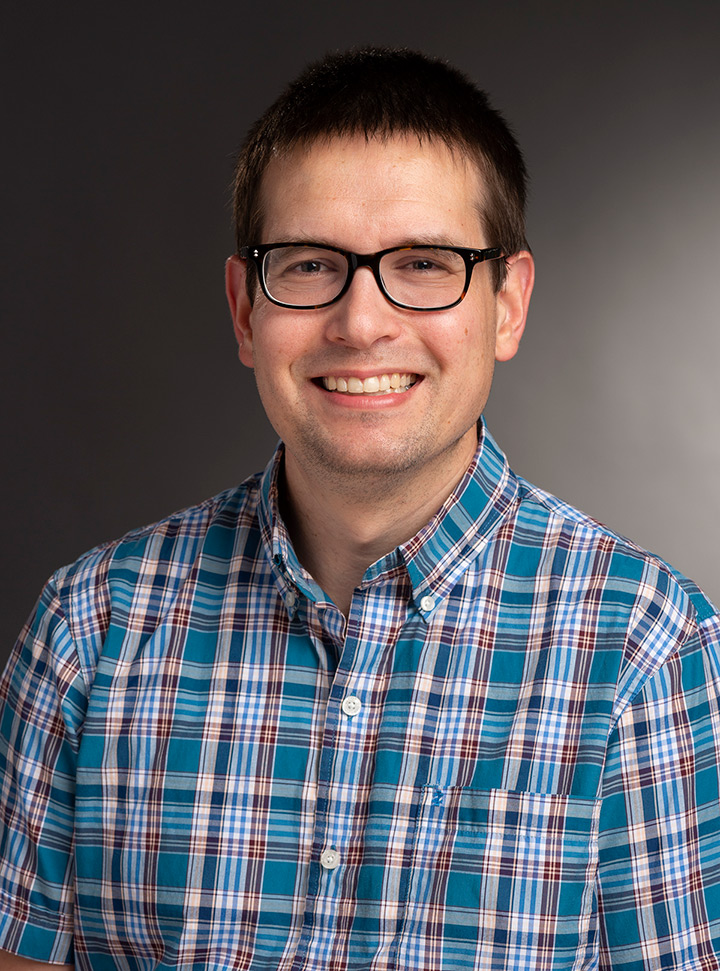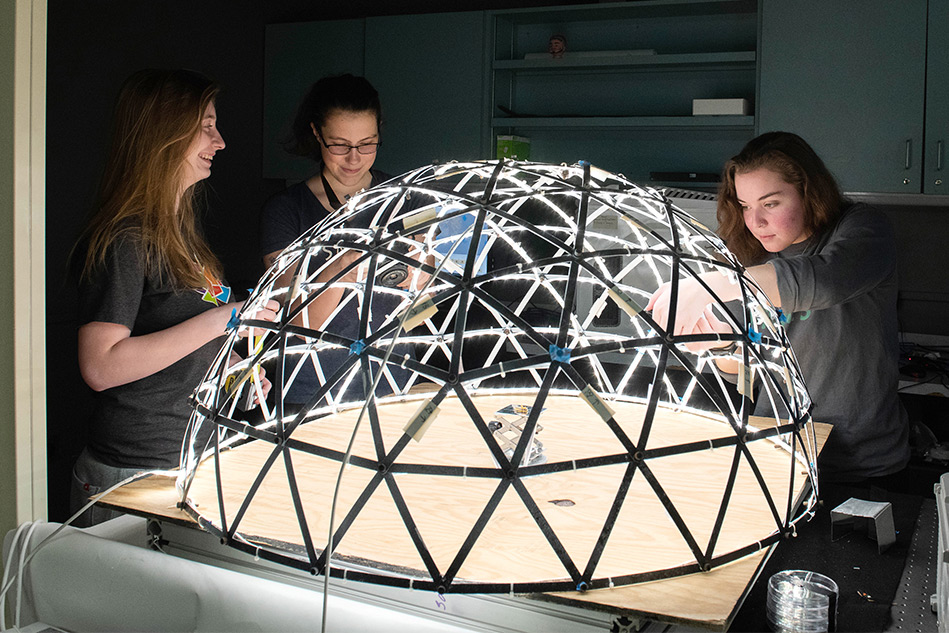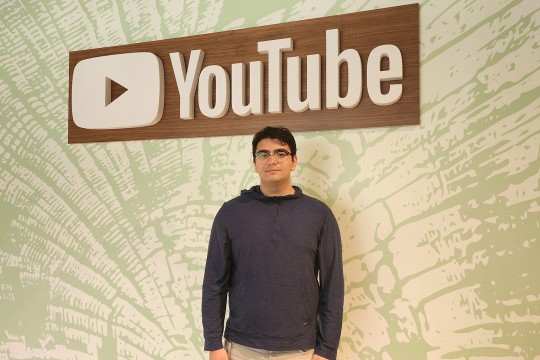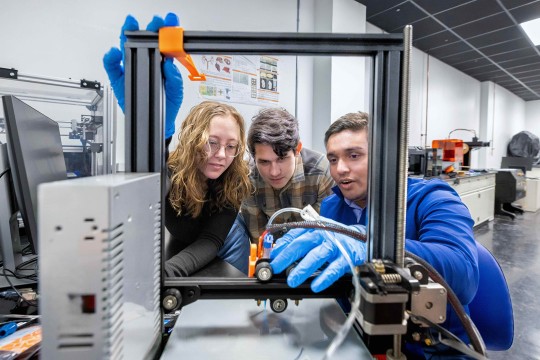RIT faculty earns federal award to study how to help more students become scientists and engineers
Study will assess how experiential learning improves interest, retention and career preparation
Gabrielle Plucknette-DeVito
Part of the five-year, $486,124 grant will allow RIT to design and implement a project-based physics course for freshman physics majors, similar to the Imaging Science program’s Innovative Freshmen Experience class, pictured here.
A Rochester Institute of Technology professor has earned a prestigious National Science Foundation award to explore how lab-based, project-based and work-based learning environments can teach sophisticated problem-solving skills not attainable in lecture courses.
Ben Zwickl, an assistant professor, received a Faculty Early Career Development (CAREER) award, which comes with a $486,124 grant that will be used to examine how students learn in settings such as research labs, project-based courses and science, technology, engineering and math (STEM) workplaces. Having such experiences is known to spur more interest in STEM studies, while also increasing student retention and graduation. But, according to Zwickl, the outcomes are highly variable and it is difficult to assess learning within those experiences and understand how they produce positive outcomes.
 Ben Zwickl
Ben ZwicklIn addition to the research, part of the five-year grant will allow RIT to design and implement a project-based physics course for freshman physics majors and develop a set of practical assessment tools for learning in hands-on learning environments. The goal is to build students’ confidence, identity and interest through positive experiences of solving challenging, practical problems. Zwickl hopes that ultimately this will increase the number of students who go on to complete physics degree, especially women and underrepresented minorities. RIT will begin piloting the course in the third year of the grant.
“The idea would be to expose students to relevant, real-world projects and technologies,” said Zwickl. “It’s meant to be motivational and help them see the big picture that physics isn’t just about being good with math and equations on the chalkboard. It’s really about being able to apply those same ideas with through things like computation, design, making experiments and collecting and analyzing data. We’re trying to fold that into the freshman experience so that our students early on see the diverse skills that are needed and get the motivation needed to persist.”
The research study will rely on observations of problem-solvers in their workplaces or research labs as they create artifacts, use tools, and interact with technology and other people. The project will study diverse problem-solving activities in order to understand how learning is revealed, supported, and can be assessed within experiential settings, and also how engaging in these activities develops career interests and decisions.
“RIT has always been a renowned leader in innovative research and technology, and I am delighted that this grant will support efforts to expose more students to their world-class STEM programs,” said U.S. Rep. Joe Morelle. “Investments like this help leverage the university’s unique resources to foster the skills and knowledge necessary for students to succeed in today’s economy. I am grateful to RIT for their continued dedication to the success of both our students and our community, and I thank NSF for their partnership and support.”
Zwickl’s research is in the field of physics education and he is a member of RIT’s Science and Mathematics Education Research Collaborative (SMERC) and Center for Advancing STEM Teaching, Learning and Evaluation (CASTLE). He is also the principal investigator on the NSF-funded Photonics and Optics Workforce Education Research project, which is studying job skills needed for the photonics workforce in the Rochester region.
The CAREER program is an NSF-wide activity that offers awards in support of junior faculty who exemplify the role of teacher-scholars through outstanding research, excellent education and the integration of education and research within the context of the mission of their organizations. This project is supported by NSF’s EHR Core Research (ECR) program. ECR supports fundamental research that advances knowledge on STEM learning and learning environments, broadening participation in STEM fields, and STEM workforce development.













